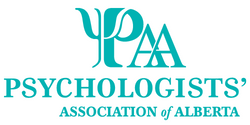
Navigating Ethical Challenges: Professional Opinions in Psychology – 2 CE Credits
Abstract
Psychologists work in a wide range of practice settings, serving diverse patients with diverse backgrounds and circumstances that call for highly individualized treatment using various modalities. Beneficence, autonomy, and confidentiality are some of the most important values when considering the best interests of the patients and of others that psychologists serve. There are times when there is a conflict between overarching principles and their relevant practice standards and values. One of the nuanced areas for clinicians to navigate with care is when providing professional opinions. What are the important considerations when there is a duty to report or to protect, or when the court calls, or when addressing a patient’s distorted belief or communicating with third parties etc.? This panel talk will address ways to render professional opinions so that psychologists may fulfill their overarching obligations to their patients and all others that they serve in their professional roles.
Learning Objective
- Learn important considerations when providing professional opinions (e.g. minors, courts, third parties)
- Identify how documentation, report writing, release of information, interdisciplinary practice, and informed consent contribute to best practices when providing professional opinions
- Consider competency and scope of practice when receiving requests to provide professional opinions
- Apply ethical decision-making skills on vignettes
Panelists

Dr. Ann Marie Dewhurst obtained her master’s degree from the University of Regina and her Doctorate from the University of Alberta. Her dissertation was entitled, “An Interpretive Inquiry into the Experience of Highly Ethical Psychologists”. She focused her practice primarily in the area of forensic psychology. In 2003 she shifted from working as the community psychologist with Corrections Canada to private practice. Since then she has worked extensively with family and criminal court related work conducting risk and parenting assessments. She is a published author and she has presented her work (mostly on family violence issues and professional ethics) at various local, national and international conferences. Ann Marie has been an instructor with the Graduate Counselling and Applied Psychology (GCAP) program since 2007 where she has primarily focused on teaching ethics. Ann Marie has recently joined the Canadian Psychological Association Committee on Ethics. As she moves into retirement, Ann Marie is looking forward to developing her knitting skills on planes taking her on far away adventures.

Dr. Keith Dobson is a Professor Emeritus of Clinical Psychology at the University of Calgary. His research has focused on both models and the treatment of depression, particularly using cognitive-behavioural therapies. He has also written about developments in professional psychology and ethics, and has been actively involved in organized psychology in Canada, including a term as President of the Canadian Psychological Association. Dr. Dobson is also a Principal Investigator for the Opening Minds program of the Mental Health Commission of Canada, with a focus on stigma reduction related to mental disorders. Dr. Dobson’s research has resulted in over 440 published articles and chapters, 18 books, DVDs, and conference and workshop presentations in many countries. In recognition of his work he has received numerous awards including the Canadian Psychological Association Gold Medal for Lifetime Contributions to Psychology, and Fellow status with several organizations, including the Canadian Academy of Health Sciences and the Royal Society of Canada. He is an Officer of the Order of Canada.

Dr. Kerry Mothersill is the Coordinator of the Regional Psychological Assessment Service (Calgary Zone, Alberta Health Services) and an Adjunct Professor, Department of Psychology, University of Calgary. He was the Psychology Professional Practice Lead in the AHS, Calgary Zone from 2011 to 2021. He provides Cognitive Behavioural Therapy and Psychological Assessment services in private practice in addition to services for the College of Alberta Psychologists (CAP). He serves as a Member at Large on the Psychologists in Hospitals and Health Centers CPA Section executive and as a Psychologists’ Association of Alberta (PAA) Practice Advisor.
Former positions in Psychology organizations include: President of CAP, the Canadian Psychological Association (CPA), and PAA; Chair of the Psychologists in Hospitals and Health Centres Section and the Clinical Section, (CPA); and Chair of the Canadian Council of Professional Psychology Programs (CCPPP). In January, 2025, he will start a term as PAA representative on the American Psychological Association Council of Representatives. He is a Fellow of CPA as well as of the Clinical Psychology Section.

Dr. Roy Frenzel is a senior psychologist with Recovery Alberta (previously Alberta Health Services). His practice is in clinical/forensic psychology and he focuses heavily on assessing and treating individuals involved with the criminal justice system. Roy has also been teaching in the Psychology Department at the University of Alberta for 30 years. His special interests include risk assessment and neurodevelopmental disorders.
Roy has served as the President of the College of Alberta Psychologists twice and spent a total of nine years on the CAP executive council. More recently he has volunteered as a practice advisor with PAA.
Host

Dr. Harpreet Gill
Harpreet Gill, Ph.D. R. Psych. is PAA’s Director of Professional Guidance. She is a Registered Psychologist in Alberta with over 16 years of counseling experience with adults and couples. She has worked in the Employee Family Assistance Program (EFAP) and private and non-profit settings. Her areas of expertise include depression, anxiety, PTSD, relationship issues, grief, addictions (including assessments), trauma, self-esteem issues, and immigrants’ mental health concerns.
CE Credits
The Psychologists’ Association of Alberta (PAA) is approved by the Canadian Psychological Association (CPA) to offer Continuing Education (CE) for psychologists. This workshop is offered for two (2.0) hours of CE Credit. Full attendance at the workshop is required to receive Continuing Education Credits. Partial credit will not be awarded, and late arrivals or early departure will preclude awarding of Continuing Education Credits. PAA maintains responsibility for the program.
Credits: 2.0
Cancellation and Refunds
Cancellation and refunds may be applied for by email or phone call to the PAA Membership Officer. Cancellations received fourteen (14) days prior to the Continuing Professional Development activity will receive a full refund of the registration fee, less a $35.00 + GST processing fee. PAA reserves the right to cancel any activity, in which case a full refund of the registration fee will be provided.
- This event has passed.
Details
- Date:
- November 8, 2024
- Time:
-
12:00 pm - 2:00 pm MST
- Cost:
- $130.00
Venue
- Online
